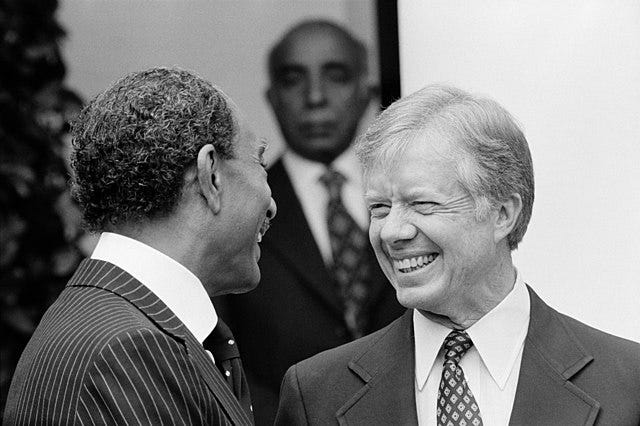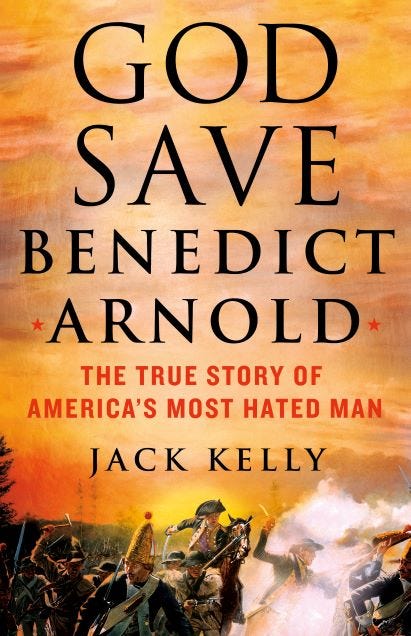“One must think like a hero,” the novelist May Sarton said, “to behave like a merely decent human being.”
Jimmy Carter is currently the longest-lived American president—he will complete his hundredth year on October 1. He is guaranteed to receive a goodly share of laurels at this birthday, and more when he dies—he has been on end-of-life hospice care since February 2023.
What are we to make of this one-term president who, in his time, was largely seen as a failure? Does his exemplary performance as an ex-president make up for whatever flaws marked his time in office? It’s an unanswerable question, although books have and will be written about it.
“Decent” is probably the one word that his friends and foes alike would apply to Carter. He tried hard, he racked up some notable accomplishments, he failed to inspire the nation, but he had a good heart and lived a life of grace and generosity.
Carter, who grew up on the family’s Georgia peanut farm, saw himself as a public servant throughout his life. After serving in the Navy, he took on his first public task as a library board member. He helped organize bookmobiles to give rural Georgians a link to literacy.
Although he was sometimes depicted as a cardigan-wearing Milquetoast, no one gets to the White House without iron determination and an ability to cut opponents off at the knees. Carter was in fact a tough, determined political operator with a razor-sharp intelligence.
His presidency was marked by economic problems, in part because of the cost of fighting a long war in Vietnam on credit. Inflation and interest rates had climbed to more than 15 percent and stagflation proved difficult to eradicate.
The Iranian Revolution of 1979 had deep roots and was brought on in part by mistakes in U.S. foreign policy going back to the 1950s. But the resulting hostage crisis and spike in oil prices on Carter’s watch helped pave the way for Ronald Reagan.
That’s history. So too is the fact that Carter righted the country’s moral compass following Richard Nixon’s Watergate debacle. So too are the Camp David Accords, which Carter facilitated in 1978. Following two major Middle East wars in the previous eleven years, the agreement resulted in a peace between Egypt and Israel that has endured to our own time.
In many ways, Carter was the right man for his era. He brought a sense of normalcy after a long and tumultuous period that had begun with the assassination of President Kennedy. He told voters, “I'll never lie to you,” and meant it.
He was the most religious of recent presidents. He taught Sunday school most of his life but always respected the separation of church and state. He never pandered to misguided Christians. “My faith,” Carter has said, “demands that I do whatever I can, wherever I am, whenever I can, for as long as I can, with whatever I have, to try to make a difference.”
He didn’t swing for the fences, the way Lyndon Johnson did on civil rights, but he did establish the Superfund program to clean up toxic wastes. He put solar panels on the White House roof long before climate change was a hot topic (Reagan took them off). In 1979, Carter, a nuclear expert trained during his Navy career, handled the largest nuclear accident in our history at Three Mile Island in Pennsylvania.
Carter loved music and invited to the White House performers ranging from Sarah Vaughan to Tom T. Hall. He sponsored a jazz festival there with a lineup that included Charles Mingus, Dizzy Gillespie, and other giants. He was friends with Willie Nelson, who once smoked reefer on the roof of the president’s mansion with Carter’s son Chip.
Carter was a “regular guy” president who carried his own luggage and avoided limousines. His administration was virtually scandal-free, and he often worked twelve hours a day. When they left the White House, he and his wife, Rosalynn, returned to the modest ranch house in Plains, Georgia, that they had lived in since 1961.
He created a foundation, the Carter Center, devoted to conflict resolution and public health initiatives, especially in Africa. The group has reduced the incidence of parasitic guinea worm infestation to the point where it may be eradicated altogether. On accepting the Nobel Peace Prize in 2002, he said, “The bond of our common humanity is stronger than the divisiveness of our fears and prejudices.”
Habitat for Humanity, founded in Georgia in 1976, took off when Jimmy and Rosalynn got involved in 1984. The group spread around the world—volunteers have built or repaired more than 400,000 homes. Carter was often pictured swinging a hammer.
Does character matter in a president? The question has been asked often in recent years. Every president is subject to the happenstance of events that occur while he or she is in office. But few would disagree that, all things being equal, it’s better for voters to choose a person of decency.
As for dying, Carter told his church members a few years ago, “I didn't ask God to let me live, but I asked God to give me a proper attitude toward death. And I found that I was absolutely and completely at ease with death.”
Recently, he said his final hope is to live to cast a vote in this year’s election. It’s something we can all emulate.
Click the image above to buy a brand-new copy of the book.







I agree with all the other comments.
I appreciate your thoughtful writing as this points to the importance of understanding a WHOLE person. Not just their achievements or failures, and certainly not just their sound bites. Political powerhouse or pauper on the street, We would all be blessed if we sought to know and assist others as deeply as we are known and helped by our Heavenly Father.